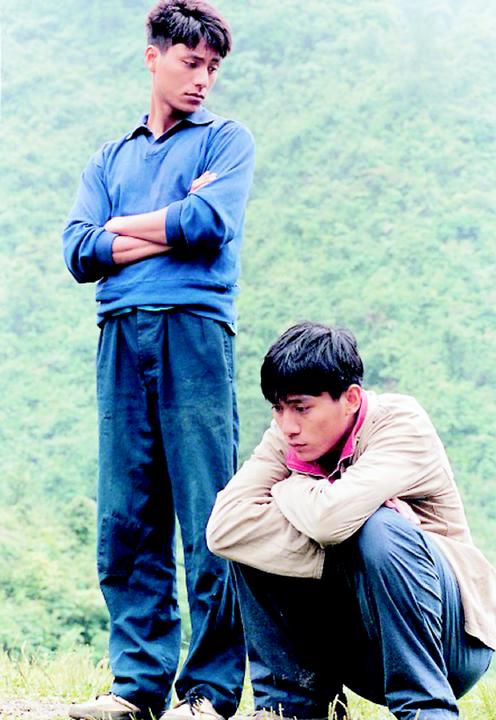The lushly adapted film begins in 1971 and follows two best friends, Luo (Kun Chen) and Ma (Ye Liu), as they are shipped off to a Maoist “re-education” center in the mountains of rural China. There, in a primitive worker's commune, our bourgoise teens are supposed to be molded into ideal, uneducated peasant laborers whose daily job it is to sing the praises of Chairman Mao.
Luo's crime is having a “reactionary dentist” for a father (who once made the mistake of treating a toothache for Chiang Kai-shek). Ma's crime (even worse) is to have two “intellectuals” as parents. Clearly these city boys need to be indoctrinated and indoctrinated quickly.
Run by a lazy disciplinarian known as “The Chief” and consisting mainly of boring rice farming and wearying copper mining, the reeducation commune doesn't do much to quell the intellectual fire of our heroes. Ma continues to play classical music on his violin, coming up with placating titles like “Mozart Thinks of Mao” for The Chief. Luo teases the uneducated farm girls by telling them there's an actual rooster living in his wind-up alarm clock.
Soon after arriving, Ma and Luo meet up with the winsome granddaughter of the local tailor. Smitten by her good looks and happy spirit, they pledge to “educate” her in the finest classical tradition. Their quest is aided, immeasurably, by a cache of illegal Western novels, which they conspire to steal from a departing comrade. Every day, they read to the Little Chinese Seamstress (Xun Shao). Lyrical passages of Flaubert, Dumas and (most importantly) Balzac enchant the girl (who is never given a proper name).
Being the only two literate people in camp, Ma and Luo are eventually given a cushy assignment by The Chief: They are to attend a cinema in the nearby village, watch imported North Korean films and report the plots back to the camp. Ma and Luo excel at the assignment, bringing their fellow re-educators to tears with their vivid descriptions of working class melodramas. The boys soon grow tired of these films, however, and start reciting tales from their collection of immoral books (citing exotic, but communist, Albania as the source). Soon all of the commune is drinking in the tales of these two skinny city boys. Even the Seamstress' ancient grandfather (who prefers stores about “ghosts or bandits”) finds himself seduced by the The Man in the Iron Mask.
Naturally, Ma and Luo both fall in love with the ever-smiling Seamstress. But it is Luo who pushes the attraction and is soon embroiled in a more-or-less forbidden relationship, setting up the low-key love triangle that will drive us through the film's climax.
Reading through Balzac, the characters note a particularly appropriate passage, describing “the savage,” who feels, and “the intellectual,” who feels and thinks. Though I haven't read the book on which this film is based, I can circumstantially say that Sijie thinks a little too much. Those looking for a passionate love story won't find it in this emotionally reserved, quietly observed tale. It is, first and foremost, a story about how great literature can save people, transform lives and bring about rebellion. It can, of course; but Sijie maintains a fairly distant, intellectual approach to it all. If you namedrop Balzac in everyday conversation, this film will speak to you. If you don't, well, it still looks gorgeous.
The film certainly brings its setting to life, evoking the long-lost villages of rural China in much the same wistful manner as Huo Jainqi's elegant Postmen in the Mountains. I do wish Sijie had breathed a little more emotion into his characters, and I wish his love of high art weren't so Western Lit 101 formal. The film's slightly downbeat ending isn't actually the most convincing PSA for intellectual freedom. You might actually wonder if the Little Chinese Seamstress and her teachers might have been a little better off with a little less knowledge. Still, as a pretty and exotic extollment of the virtues of great literature, Balzac and the Little Chinese Seamstress is a fine read.



